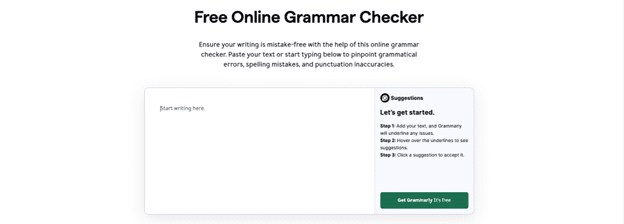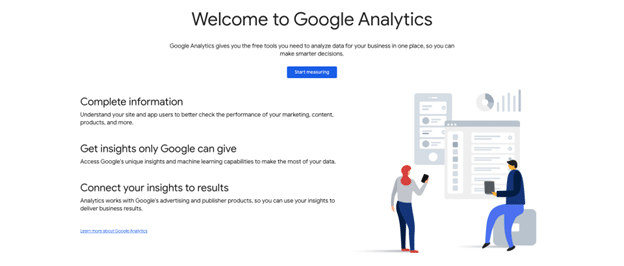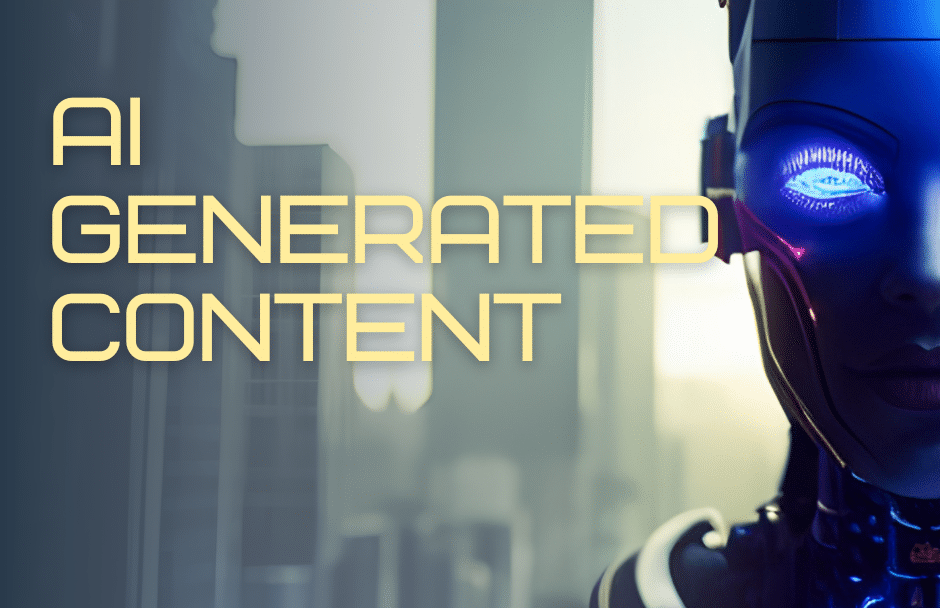
How to Use AI to Power Up Your Marketing Communication Strategy
HOW TO USE AI TO POWER UP YOUR MARKETING COMMUNICATION STRATEGY
In today’s ever-evolving digital landscape, executing an effective marketing communication strategy calls for more than crafting catchy messages and choosing the right platforms.
Luckily, with the development of Artificial Intelligence (AI), businesses have access to a remarkable tool that can take their communication game to the next level.
Read on as we explore how AI can help you execute a flawless communication strategy with the use of a few very effective programs using this technology.
Why You Need an Effective Communication Strategy
A communication strategy is an integral part of any marketing plan. “Without a communication strategy, you’re shooting from the hip and hoping for the best,” says Chrisna Basson-Wessels, a Brand and Communication Strategist with more than a decade’s experience in the field. “An effective communication strategy links to the business strategy and clearly articulates the different paths from objectives to channels to key messages and KIPs.”
It all boils down to better results, as a robust communication strategy can help you build stronger brand awareness, better engagement with your audience, and customer loyalty. What’s not to like about that?
A Quick Recap: What Is AI again?
It is rather unlikely that you haven’t heard about AI, but just in case, let’s take a quick look at what it is and what it offers us.
AI has been around for some time, but it was with the launch of OpenAI’s ChatGPT that it became a household topic.
Basson-Wessels notes: “If you look beyond the hype to a more realistic view, AI can be very useful and pragmatic.” Using Natural Language Processing (NLP), ChatGPT and programs like it can be more effectively utilized by simply inputting a prompt.

However, getting the right response takes some finesse and requires a bit of know-how and experience.
How To Use AI in Your Content Marketing
Programs such as ChatGPT are extremely powerful, and their usefulness extends beyond solving white-page syndrome or simply answering questions.
AI can take tedious content marketing tasks and complete them in record time through what is known as Intelligent Automation (IA). It is through IA that most of the usefulness of AI for marketers can be unlocked.
A marketing communication strategy is an essential part of content marketing and comprises four essential things: Key Messaging, Audience, Dissemination, and Schedule.
Let’s take a closer look at how AI (and IA by default) can be of service to developing each.
1. Key Messaging
Basson-Wessels states:
“A ‘key message’ is the crux of what you need to relay to your audience. It helps to link a specific message to a specific objective in the communication strategy process. For example, for your brand-building objective, you should have a key message pushing your unique selling proposition (USP), and for your sales-driving objective, you should have a key message pushing your special offer. But importantly, you must not push all key messages at every point of contact.”
In other words, knowing what information to give your customer during each phase of their journey is crucial to obtaining the desired behaviors and outcomes.
For marketers, AI is especially useful for analyzing customer sentiment, personalizing content, optimizing headlines, and checking that your company message and brand voice are consistent across platforms and throughout content.
Using AI, users can input the company’s Brand Voice and have the program check whether existing content aligns with it. These are only a few of the possible uses of AI-powered programs.
2. Audience
Knowing your audience is as essential to your company’s success as having a clear vision and strong leadership.

Who are the people that are buying your product or using your service? What do they like? Where do they hang out? What other products or services do they use?
Using AI, marketers can answer all these questions by analyzing vast amounts of data to create a clear audience profile.
A worthwhile feature of AI that marketers can use is the ability to listen in on the language their audience is using so that they can adapt their message to their audience’s interests. This is just another way AI can build a better picture of the people you might be trying to reach.
3. Dissemination
There are a seemingly unlimited number of online platforms with which users engage and through which they consume content. However, knowing who your audience is makes it easier to understand where to publish content to attract their attention.
Basson-Wessels notes: “As our channel ecosystems expand, it’s an opportunity to engage with audiences in multiple ways. It adds layers to your brand identity and ultimately brand perception when you show up in different ways leveraging different channel formats.”
She warns, however, that “audiences have a very specific relationship with each channel, so it’s crucial not to simply replicate the content of one channel onto another.” Again, this is where AI can be of use. By analyzing user data and past trends and behaviors, AI algorithms can suggest the best type of content and which platforms and channels would get the best results.
In addition, when users engage with your brand through your website or social media, AI can curate content based on their preferences and past behaviors.
Another possibility is an AI-powered chatbot integrated into your site to answer questions, provide recommendations, and guide users to relevant content.
4. Schedule
The right timing is crucial when it comes to publishing content and hitting your marketing goals.
For Basson-Wessels, creating a schedule “ensures that you have a holistic approach to your content, with different pillars or themes linked to different objectives, going live at the right time.”
AI algorithms can identify the optimal times at which content needs to be published to specific channels to be best perceived by your audience.
Then, IA adds to the effectiveness of your campaign by allowing you to schedule the automatic publication of certain posts or have specific content delivered to audiences when triggered by a particular behavior.

The result is content that gets delivered at the right time and in the right place.
A Few Useful AI-Powered Programs
Search for “AI Marketing Programs” online, and you are sure to find a dozen. But deciding which are worthy of your time and effort can feel like an unnecessarily difficult task. That’s why we’ve rounded up a few popular programs that are sure to have something of use.
SemRush

SemRush is a robust software program that gives marketers massive opportunities to improve a brand’s online visibility. It helps with everything from making content to overseeing and evaluating it across various channels. It helps you increase your SEO with on-page analysis, keyword search, and much more. The platform is robust and has a free trial to get you started.
Useful for: Key Messaging
Grammarly

We’ve written about Grammarly before, and that’s because it is just such a handy tool to have. At the bare minimum, it’s a spell-checker that can be installed to check your writing across your social channels, making sure no mistakes slip through. But at its most useful, it is a tool that uses AI and NLP to create written content for you or offer suggestions on improving your work while considering your brand voice and aims.
Useful for: Key Messaging
Google Analytics

Having a website means there is no reason not to have Google Analytics. The program gives you vast amounts of data and insights into how users use your website and whether you are achieving your goals. What’s great is that you get insights into who uses your site at the click of a button— checking out where they were before coming to your site and how long they stayed on it. Google Analytics uses AI to generate these insights; the best part is that it is free!
Useful for: Audience
SalesForce

At its core, SalesForce is a technology that helps connect companies with their customers. Like most other programs mentioned here, it is pretty powerful, and even knowing where to begin using it can feel intimidating as there are so many possibilities. SalesForce uses predictive and generative AI across the platform to allow its users to create personalized sales emails, customer service experiences, and even product descriptions, among others.
Useful for: Audience
Hootsuite

Having a brand presence across a wide array of social media channels can feel overwhelming, especially as you need to keep track of what’s happening on each one. Enter: Hootsuite. The program lets you import all your profiles into one inbox and reply to comments and messages across platforms. Not only that, but you can be alerted when someone mentions your brand or there are conversations happening about it. And, of course, its AI writer is there to help write first drafts, come up with content ideas, write captions, and choose the best hashtags for your posts—all in one place.
Useful for: Dissemination and Schedules
Buffer

Buffer is a handy program that allows you to distribute content across various channels with scheduled publishing at recommended times for optimum engagement and awareness. Moreover, the Buffer AI Assistant can generate content ideas for you and repurpose existing content repeatedly. At the same time, its IA counterpart creates automated reports to showcase your work and identify your success.
Useful for: Dissemination and Schedules
Conclusion
Harnessing the power of AI is not merely a trend but a necessity for modern marketing communication strategies. As we’ve explored, the power of AI is easily accessible through many tools and programs that can significantly enhance every aspect of your communication strategy.
Related Content
- 0 Comment



